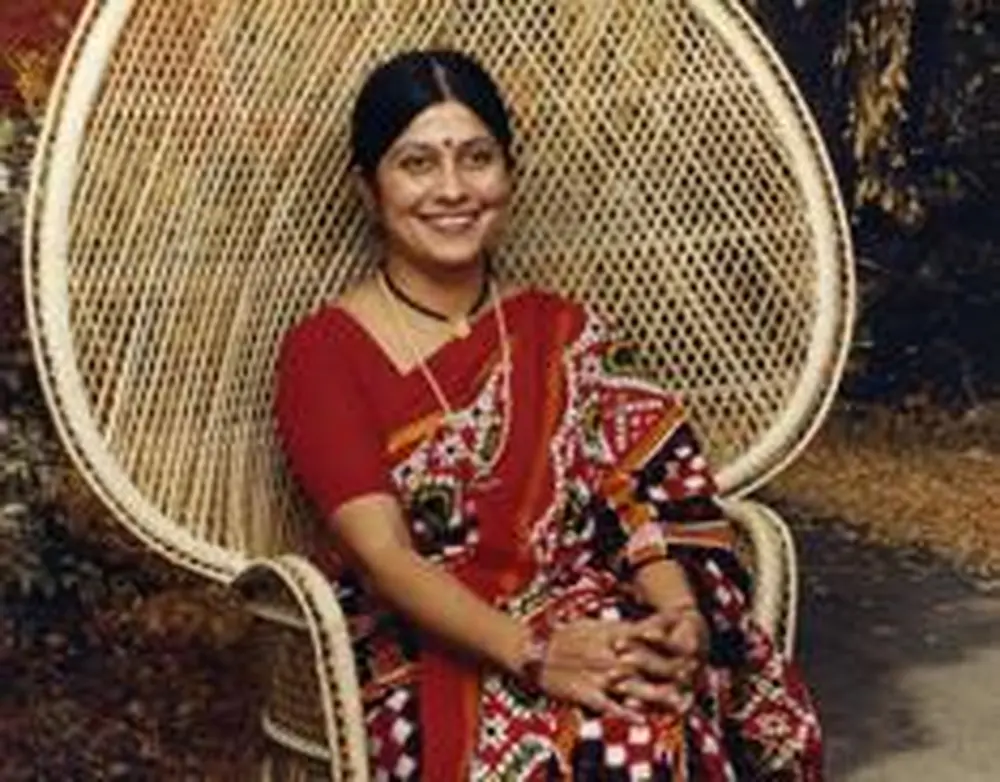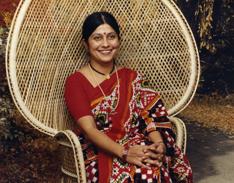

As a girl in post-colonial India, Rajeshwari Pandharipande learned the sacrifice required for an education. What defines her as a professor is something else she learned at a young age, which she lives by—and is being honored for—even decades later and half a world away in Illinois: The importance of educating others.
That requires sacrifice, too, and nowhere was it on display more meaningfully than at home. She grew up in a household of 15 children; most were cousins her parents raised to give them access to schools that would have excluded them had they remained on farms outside of town.
“Everybody wanted to get an education,” she says. “We all felt like we learned so much from each other. One thing is language. My father spoke a different language, my mother spoke a different language. My father’s parents lived with us. They spoke a third language. All of us spoke three languages naturally.”
Her father was a lawyer, and her mother was a professor and education officer with the government who helped open 36 schools for women. Both were independence activists who worked with Gandhi to free India of British rule, and Pandharipande absorbed from them a deep desire to learn the ancient cultures of her country that had been muted for so long.
“They made sure that we were all exposed to the cultural dimension,” Pandharipande says of her parents. “As a child I thought there was a very big missing link in the history of India.”
These were fundamental components in her becoming one of the most distinguished professors in the College of Liberal Arts & Sciences. Pandharipande earned her first doctoral degree, in Sanskrit literature, in India, and her second, in linguistics, from the U of I. In 1983, she joined LAS as a professor of religion and linguistics. Since then, she’s become a well-known expert in sociolinguistics, Sanskrit, Marathi, and Hinduism, authoring three books and establishing the Hinduism program in the Department of Religion.
She’s been named a University Scholar, and she has received associateships at the Center for Advanced Study and research grants from the American Institute of Indian Studies. Just as importantly in her mind, she’s proven a devoted and effective teacher, receiving the Harriet and Charles Luckman all-campus Distinguished Undergraduate Teaching Award, and LAS’s William Prokasy Award for Excellence in Undergraduate Teaching.
And, as evidence that time has not dulled her enthusiasm, just this fall she was named a Distinguished Teacher/Scholar, a title she will retain for the remainder of her career.
There’s no sign of her resting on her laurels. Along with research, meetings, and other faculty commitments, Pandharipande spends up to 20 hours a week preparing for her classes, including introductory courses that she’s taught for years. Robert McKim, head of the Department of Religion, says she is a careful and organized teacher and skillful at engaging and invigorating even large groups of students.
She believes that learning is an interactive event, and students may remember her for patrolling classes with a microphone seeking to add their insights to the discussion. She has an uncanny ability to remember who missed class, even in her large classrooms, and she’ll mention absences to students the next time they meet.
“They are stunned,” Pandharipande says. “They say, ‘How do you know?’ I say, ‘I know.’ When I walk around I know exactly who sits where.”
This year she’s leading a group of faculty to develop guidelines to more effectively teach research methods to large classes of undergraduates. She envisions small groups of students interacting with each other, thus countering time restrictions that often prevent individual attention in classes of sometimes hundreds of students—a shortcoming that has grated on Pandharipande for years. Much potential lies in large classes’ diversity of students and ideas, she says.
“I would like to place U of I on the map as a leader in large class teaching,” she says.
Students take note of her dedication. They remain in contact with her for years and she’s even attended their weddings. To her it’s a sign of success, for she feels that even in the university world of big research, good teaching is crucial. Research is vital, she says, but it must also be passed on to young minds.
“How can you be a professor without teaching? You cannot be,” she says. “For me, teaching is a passion. I feel that I am so privileged that I do exactly as I like, and I get paid for it.”